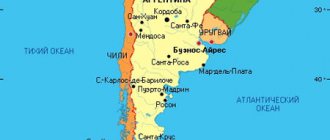In addition to the status of temporary asylum, refugee and forced relocation, in Russia there is such a humanitarian status as political asylum. A person who has obtained this status, as in other cases, can stay in the country legally. From this article you will learn what political asylum is, who can apply for it, who is not entitled to it, what rights does a recipient of political asylum status have, how to obtain political asylum in Russia, where to apply, what documents and procedures are needed, how long it will take status is valid.
What is meant by political asylum?
Important! Every person has the right to seek asylum in the territory of foreign states in the event of persecution in his country of permanent residence. This right is reserved for citizens in Article 14 of the Universal Declaration of Human Rights.
Political asylum is the status of a foreigner/stateless person on the territory of a foreign state, which is established by the Constitution and implies the possibility of legal stay in Russia. In this case, the extradition of a foreigner to the authorities of his home country is excluded, even if a request for his extradition is received. The UN warns that the refusal to extradite a foreigner/stateless person who has received political asylum cannot be considered a provocation or an unfriendly act.
Political asylum can be granted only if a person is persecuted in his homeland for participating in any public activity or for political reasons.
What is political asylum and why is it needed?
The Institute of Modern International and Domestic Law defines political asylum as a certain right of a person who is not a citizen of a certain country to stay for a long time on its territory and enjoy the protection of its legislation.
Often, people forced to seek political asylum have to face a number of difficulties, starting with the banal border crossing and ending with the lengthy collection of the necessary documents
Who can ask for political asylum
According to the Universal Declaration of Human Rights, as well as the Geneva Convention of 1951, political asylum is granted to a citizen of another state in the event of persecution in the territory of the country in which the person previously lived. Asylum serves as a way to protect an individual from various types of persecution at home for several reasons:
- by religious affiliation;
- by orientation;
- according to political views;
- based on race and nationality;
- according to social position.
However, procedures may vary slightly from country to country. By the way, some states do not distinguish political refugees at all as a separate category of forced migrants (for example, Germany).
Please note that in order to grant an applicant political asylum, sometimes there is little evidence of infringement of his rights by individual local authorities. The person concerned must have evidence that he is being persecuted by the authorities or the public at large and cannot escape harassment and danger on the territory of his native state.
Video: political emigration from Russia, history and modernity
Refugee rights
Obtaining asylum gives the applicant the right to receive financial and humanitarian assistance from the state in the form of food and clothing, as well as to live for some time in specially created camps on its territory. Political asylum after a certain period allows you to apply for a residence permit, gives the applicant the right to officially find a job and receive assistance from the state that accepted the refugee in the form of all kinds of pensions and benefits (if such are provided by the state). As a rule, the applicant also has the right to bring his relatives to the country, that is, his spouse and children who have not reached the age of majority.
Political asylum is not granted for life. As a rule, it is provided for five to ten years, and if necessary and if there are reasons, it is extended. It is important that a person can be deprived of refugee status earlier than five to ten years after receiving asylum. For example, when he received status on the basis of political persecution, and over a period of time the political situation in his home country changed for the better for the refugee, then the reason for fear of living in his homeland will lose its relevance.
Video: lecture on the status of refugees
How to obtain political asylum in Russia - who has the right to political asylum
Important! If the applicant’s application for political asylum is approved, all members of his family will also be granted the right to stay in Russia, and consent for minors to live in the Russian Federation is not required.
In order for an asylum application to be granted, the applicant must meet all of the following requirements:
- He must be a foreign citizen or stateless person.
- He must be seeking asylum outside the territory of his country of residence or his affiliation due to a real threat or persecution.
- He must be in danger because he is engaged in certain political activities or has unconventional political beliefs.
- His activities and beliefs do not contradict democratic principles.
- The persecution is carried out against only himself or him and his family, but is not widespread.
Who can count on political asylum
As already mentioned, the term itself determines that only someone who left the country for political reasons can become a political refugee. The legislation of the vast majority of countries in the world recognizes the concept of “political refugee”, without limiting the circle of persons who can claim it by age, race or nationality, or religious affiliation. This means that almost anyone can become a political refugee due to certain circumstances. It should be said that the laws of most countries of the world regarding refugees have a practically unified regulatory framework, differing from each other only in some respects.
For what reasons can political asylum be denied?
An application for the right to stay in Russia on the basis of political asylum will be rejected if:
- the applicant does not want to return to his country of origin for any reason not related to political persecution;
- the foreigner has acquired citizenship of a third country where he could go;
- a foreign person, in an attempt to obtain status, provided false information about himself;
- a foreigner came to Russia from a country with which the Russian Federation has an agreement on visa-free entry;
- the applicant comes from a country with which Russia has different democratic institutions;
- there is no real threat in the country of origin;
- the person has been prosecuted (or is currently being investigated) for criminal liability in Russia;
- the applicant suffers persecution because of actions that are considered crimes in Russia (or if the actions contradict UN principles).
How to obtain political asylum in Russia - where to apply
As in all other cases related to the legalization of humanitarian status in Russia, foreigners and stateless persons wishing to obtain political asylum in the Russian Federation must submit an application to the territorial offices of the Ministry of Internal Affairs - the Main Directorate for Migration Affairs of the Ministry of Internal Affairs . This authority is authorized to initially consider the application, to assist in drawing up the application and to make a decision on whether to accept the application for examination.
Further, if the petition was accepted, the case is transferred to the Main Directorate for Migration Issues of the Ministry of Internal Affairs . An opinion on the case is requested from the Ministry of Foreign Affairs the Federal Security Service also takes part in the decision making . As a result, the results of studying the materials are sent back to the Main Directorate of the Ministry of Internal Affairs, where a conclusion on the case is drawn up.
If it was decided to satisfy the foreigner’s request, the papers are transferred to the Commission on Citizenship Issues under the President of the Russian Federation . The final authority in considering the issue becomes the President of the Russian Federation - the head of state issues a Decree.
How to obtain political asylum in Russia - filing an application
Important! The application for political asylum is written in Russian. The document is drawn up in the name of the President of the Russian Federation.
The application for political asylum must be drawn up in a unified form (see Appendix No. 1 to the Administrative Regulations). In particular, the document must necessarily contain personal information about the applicant, information about citizenship, document numbers, information about family members and their consent to reside in Russia.
It is necessary to take care of filing the application within 7 days after crossing the Russian border or discovering obstacles to leaving the country of origin. You must have with you:
- ID card (general passport, international passport, ID card, etc.);
- temporary residence permit or residence permit (for stateless persons);
- 2 photos (if there are no photos, they can be taken directly at the Main Department of Migration Department of the Ministry of Internal Affairs).
At the place where the application was submitted, dactyloscopy (fingerprinting) will also be carried out. An individual survey will also be conducted, following which an employee of the Main Department of Migration Affairs of the Ministry of Internal Affairs will fill out a questionnaire and questionnaire.
Sending documents
All collected papers now need to be formed into a so-called case. However, before this, the applicant must make a copy of each document so that she can then go to the interview with this case.
At the beginning of the case, the person must put a table of contents (since there will be a lot of papers, a table of contents is required), then a statement, etc.
If the document is too large and incomprehensible to understand, it is permissible to highlight some points or phrases with a colored marker.
The applicant sends the case by regular mail and in no other way to USCIS. After sending, you will need to wait for a response from this service with their confirmation that all documentation has been received.
What rights do holders of political asylum status have?
Important! A certificate of political asylum is provided on an indefinite basis - the status can be terminated when there is no reason to remain under the protection of the Russian Federation.
Holders of a certificate of political asylum are entitled to the following rights:
- the right to participate in government programs;
- the right to go to clinics for free help from qualified doctors;
- the right to start your own business;
- the right to study at Russian universities;
- the right to search for work and conclude an employment contract.
Expert opinion on the question of why a foreigner may lose his political asylum status
Employees of the Commission on Citizenship Issues under the President decide the issue of depriving a person of political asylum based on the conclusion of the Main Directorate for Migration Affairs of the Ministry of Internal Affairs, the Ministry of Foreign Affairs and the FSB. Loss of status will follow after the following circumstances are identified:
- The expulsion of a foreigner from the country is required by the state. safety;
- the foreigner is engaged in activities that are contrary to the principles of the UN;
- the foreigner committed a criminal offense and was convicted;
- the applicant went back to his home country of his own free will;
- a foreigner decided to go for permanent residence to a third country;
- the foreign citizen himself declared his desire to renounce political asylum;
- the foreigner has acquired citizenship of the Russian Federation or citizenship of a third country.
Legislative acts on the topic
| Art. 14 Universal Declaration of Human Rights | On the legal status of political asylum |
| Declaration on Territorial Asylum (adopted by the UN General Assembly on December 14, 1967) | Consolidation of rights to political asylum in the Russian Federation and other UN member countries |
| Art. 63 of the Constitution of the Russian Federation | On granting political asylum on the territory of Russia |
| Decree of the President of the Russian Federation dated July 21, 1997 No. 746 | The procedure for granting political asylum status to applicants |
| Order of the Federal Migration Service dated December 5, 2007 No. 451 | The procedure for granting political asylum in terms of paperwork by the migration service |
Contemporary problems of diplomatic asylum
Junior researcher at the MGIMO Analytical Center Sharbatullo Sodikov explains why, in his opinion, diplomatic asylum should be prohibited.
The functions of diplomatic missions and consular offices for diplomatic protection are listed in the Vienna Convention on Diplomatic Relations of 1961 and the Vienna Convention on Consular Relations of 1963, which establish provisions on the possibility of this type of protection in case of violation of the rights of citizens and organizations within the framework of international legal relations .
At the same time, these conventions do not clarify the limits and conditions for the use of diplomatic protection, nor what causes its necessity. According to a number of studies, the right of territorial asylum can also be classified as diplomatic protection, when asylum is provided to a person not by a diplomatic or consular institution, but by a state on its territory. The granting of asylum is brought to the attention of the Ministry of Foreign Affairs of the country where the refugee came from. Naturally, the refugee issue is resolved between states through negotiations. A refugee who has received asylum (in a state or in a diplomatic mission) must not commit actions that are contrary to public safety and the legislation of the state that granted him asylum.
Regarding the right of asylum, our Constitution contains Article 63, paragraph 1 of which states: “The Russian Federation provides political asylum to foreigners and stateless persons in accordance with generally recognized norms of international law.” In addition, on July 21, 1997, the Regulations on the procedure for granting political asylum by the Russian Federation were adopted.
In Europe, the most liberal state, which has provided asylum to persons regardless of their political and other views for the last two centuries, is Great Britain. Moreover, in contrast to global practice, the United Kingdom can provide asylum even to persons accused of or convicted of ordinary crimes, as well as deserters from the armed forces and war criminals.
It should be noted here that Great Britain, as well as France and the United States, formally do not allow diplomatic asylum on their territory, do not recognize the right to grant asylum to other states, but provide it themselves. In this sense, the West in general is characterized by recognition not so much of the rule of law as of political expediency.
Such actions of a state that in one way or another violate the norms of international law cannot be considered diplomatic protection.
The universal position is reflected in the Vienna Convention on Diplomatic Relations of 1961. In paragraph 3. Article 41 of this document states quite clearly: “The premises of the mission must not be used for purposes incompatible with the functions of the mission provided for by this convention or other rules of general international law, or any special agreements in force between the sending state and the receiving state.” What follows from this situation? Providing diplomatic asylum is not part of the functions of a diplomatic mission. This means it cannot be provided. However, the parties can enter into a special agreement between themselves - and then the situation changes. The institution of diplomatic asylum operates mainly in Latin American countries. This right is granted mainly to persons persecuted in their state for political or religious reasons.
Practice does not clarify the problem of diplomatic asylum, although it is very extensive. The issues were resolved in different ways. Many examples could be given, but we will refer to one because it is instructive and interesting. In 1936-1939 There was a civil war in Spain. From its beginning, opponents of the Republican government fled to foreign embassies in search of refuge. In May 1937, the number of these refugees amounted to 6,000 people. The Spanish government did not recognize the rights of diplomatic asylum and insisted on their extradition. A problem arose that the League of Nations took up. This problem was considered at the 95th emergency session in January 1937. No decision was made, but only the wish was expressed that the problem be resolved through direct negotiations between the parties concerned.
The problem of diplomatic asylum made itself felt later. Disputes in this regard even reached the International Court of Justice, but a final solution was never found. It turns out, in the end, that the state, when considering the question of whether to grant diplomatic asylum to a person or group of persons or not, is guided solely by political interests. So, let’s say, during the Cold War, the US Embassy repeatedly gave shelter to various “anti-Soviet people” within its walls, although the United States officially challenged the right of states to asylum of this kind at all levels. With Russia's transition to a different political and legal quality, a problem of this kind in Russian-American relations disappeared.
But it remains at the universal level. It needs to be resolved through the joint efforts of all states, for example, within the UN. This seems necessary because harboring someone in an embassy or consulate greatly complicates relations between states, which is never desirable in international relations. In 1967, the UN General Assembly adopted the Declaration on Territorial Asylum. However, a universal convention on the right of territorial asylum was not concluded.
It appears that diplomatic asylum should be prohibited since immunity is granted to the embassy for the exercise of generally recognized functions outlined in the Vienna Convention on Diplomatic Relations of 1961. None of these functions imply diplomatic asylum.
In modern conditions, as can be seen, diplomatic protection is complicated by various conditions that go beyond the hitherto recognized concept of the institution of diplomatic protection. The West is trying to expand this concept at various levels. This is especially noticeable in the work of the International Law Commission. It seems that to date, when activities are underway to prepare and adopt the relevant convention, the Russian side has only limitedly determined its position regarding the draft articles on diplomatic protection prepared by the ILC and approved by the UN General Assembly. This project seems quite controversial, as does the trend of increasing rapprochement between diplomacy and business. Yes, for business such a trend seems correct, but it should be borne in mind that business relations do not always bring states closer together; they can often become a factor complicating interstate relations.










